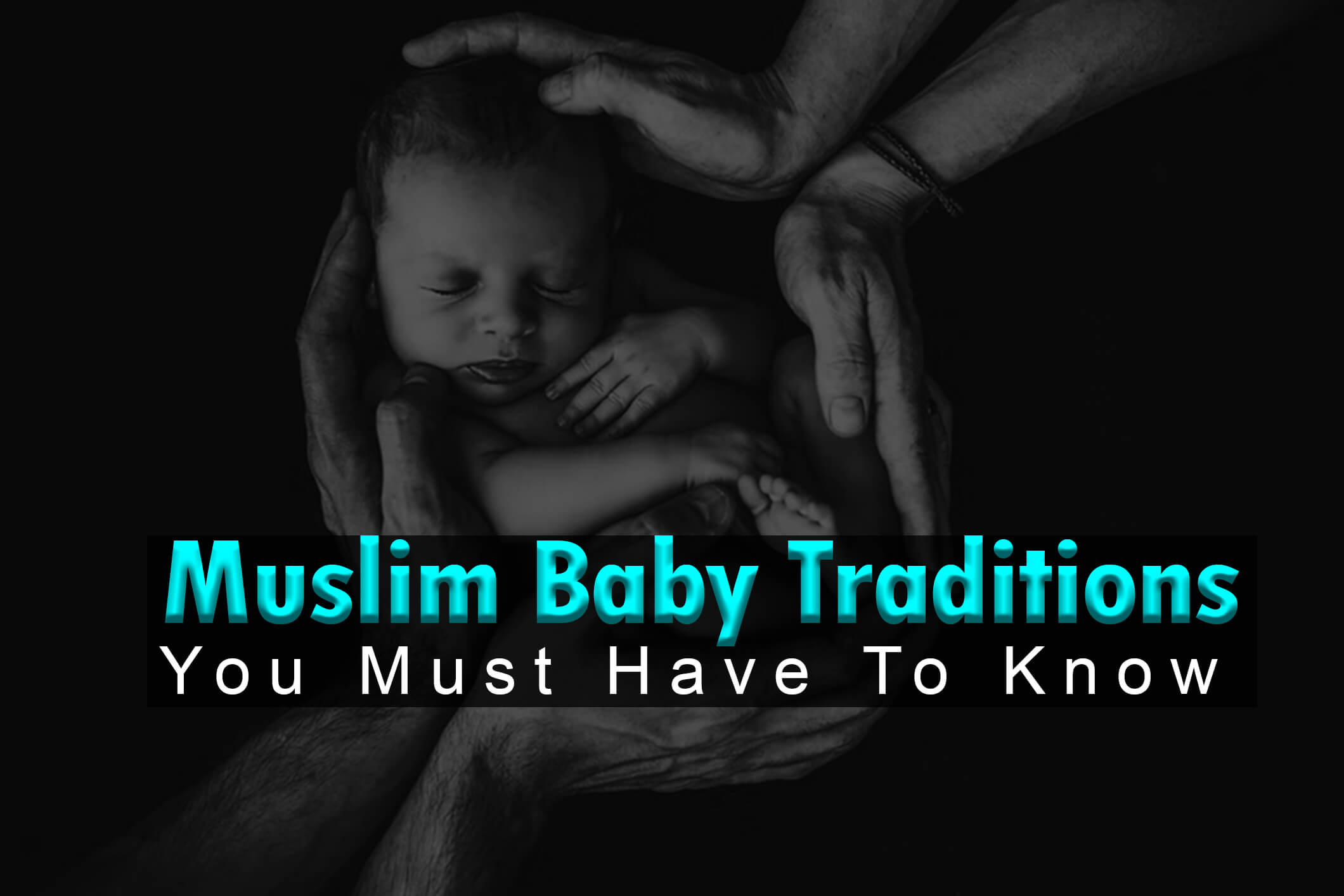Muslim Baby Traditions You Must Have To Know

Muslim Baby Traditions: One of life’s greatest joys is welcoming a new member into the family.
To show our gratitude to Allah and delight in the new addition to our family,
Muslims have special traditions at such times (SWT).
Traditional childbirth practices vary from culture to culture; here we examine
some that are consistent with the Quran and Sunnah.
Prayer Calls, or Adhan And Iqamah
A baby is born, the first sounds it may hear are the adhan and iqamah.
The father typically takes on this responsibility. The child must be facing the Qiblah
as he or she whispers the adhan into the right ear and the iqamah into the left.
Providing A Tahneek or Sweet
Babies should be able to experience the sweetness of solid food immediately after birth.
It is Sunnah to rub the baby’s lips and mouth with the juice of date or other sweet food.
Someone older, like a grandfather, is typically chosen for this honorable task.
Please only give the baby juice and not solid food. If you aren’t sure of the proper
safety procedures, don’t attempt it.
How did you learn that? A study published in 2013 in The Lancet found that a dose
of sugar given as a gel protects the brains of premature babies.
Muslim Baby Traditions
Aqeeqah, The Seventh Day
The Aqeeqah, which is typically performed on the seventh day, has a few symbols.
An animal is butchered and a feast is held on the seventh day.
Some of the meat is distributed to friends, family, and neighbors who are in need.
The baby’s head is shaved as part of a ceremony that occurs on the seventh day.
After the hair has been cut, its value is calculated, and the proceeds are donated
to a worthy cause.
You heard that in what way? It’s a common misconception that shaving a baby’s
hair will make it grow back thicker and stronger. There is no scientific proof for this.
Selecting A Name For A Newborn (Muslim Baby)
One of the most significant acts of parenting is choosing a meaningful name for your child.
How a child develops emotionally, socially, and spiritually, as well as their perspective
on the deen, are all profoundly affected by the name they are given.
Names are significant enough that the Prophet (SAW) changed the names of some of
his friends. The name Saab, which means “hard,” was the name of one Sahabi.
How did you learn that? The baby’s name is traditionally announced on the
Aqeeqah day in some cultures. Muslim Baby Traditions
Circumcision
Male circumcision is highly valued in Islam for its association with improved personal
hygiene and general health. Even the ancient prophets employed this strategy.
To avoid complications, the procedure should be performed by a doctor or nurse.
Many families opt to have the procedure done on their sons at a young age.
What taught you that? Studies have shown that circumcision is good for your
health in many ways, including lowering your risk of getting sick.
Nifas
“Post-natal bleeding” is what the Arabic word Nifas refers to.
The bleeding stops or 40 days have passed, whichever comes first,
women are discouraged from engaging in normal activities like praying or fasting.
